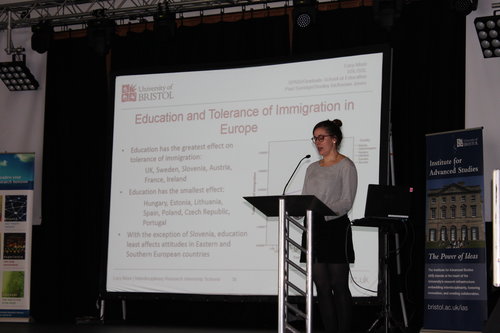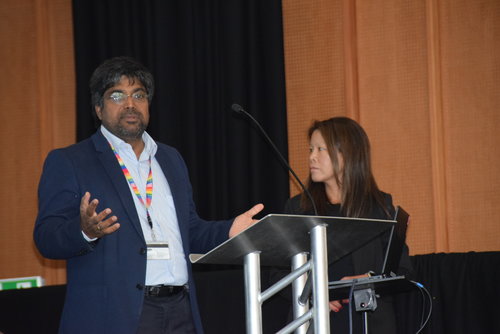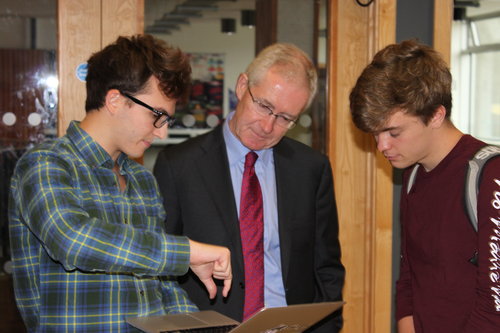Nineteen undergraduates from across all faculties were awarded internships, and made presentations at a special event hosted by Professor Nishan Canagarajah, Pro Vice-Chancellor (Research).
The scheme, which was launched in 2014, offers undergraduate students the opportunity to undertake an interdisciplinary research project for eight weeks during the summer and is coordinated by Bristol’s Institute for Advanced Studies (IAS) and supported by the University Research Committee (URC).
The project must bring together two different disciplines, with two academic supervisors – one from either discipline.
Lucy Moor and Eleanor Smith were the two poster prize winners for their projects ‘Education and Tolerance of Immigration in Europe’ and ‘Tackling Xenophobia through the Visual Art’.
Lucy said: “The interdisciplinary nature of the scheme meant I went beyond what I've previously studied at undergraduate level, combining elements of political sociology and social psychology.”
Her supervisor, Paula Surridge: "Lucy is a hard-working and talented student with a flair for research; the internship has given her a fantastic opportunity to use and further develop these skills in an inter-disciplinary environment which is increasingly how these big questions in social science need to be pursued."
Eleanor found that the scheme, “provided the space, time and access to resources which enabled me to conduct in-depth research across two disciplines which are not often associated.”
She added: “As a result of the Interdisciplinary Internship, I have begun thinking much more open-mindedly about my own subject. Now, when researching and formulating ideas, I am conscious of other fields of study and the possible alternative approaches they can offer."
Ellie’s supervisors were from History of Art and Experimental Psychology. Dr Dot Price said: “Working together with Ellie and Susanne has been a richly rewarding experience. The collaboration tested the possibilities of how psychology and art history might rub together and enabled us to learn where our disciplinary limits and overlaps might be. We have all learned a lot from the process.”
Dr Susanne Quadflieg, added: “As a psychologist interested in the consequences of witnessing racial diversity I wanted to learn if and how artists had portrayed racial differences in the past. Ellie quickly identified relevant catalogues that entailed paintings of 20th century artists who explored race in their work. Without her initiative and prior training in art history I would have been quite lost.”
The Vice Chancellor, Professor Hugh Brady, praised the scheme, students and their supervisors and commented on the high quality of the research projects, he also encouraged the students to think about taking their research further by pursuing Masters and PhDs.


